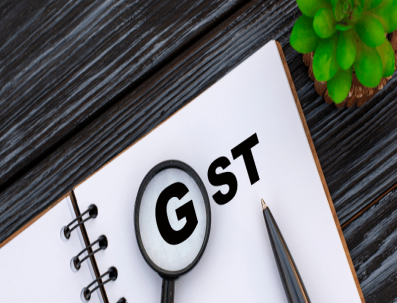
When CSR is working towards societal impact, should GST be charged on CSR funds?
As the world was reeling with the impact of COVID-19, corporate and companies have played a pivotal role in helping the country. Be it providing essential commodities like face masks, PPE kits, sanitisers, food packets, every donation helped society to fight back. All these activities that are undertaken or donations made to eliminate social insecurity and COVID-19 fall under donations in Schedule 7 as Corporate Social Responsibilities.
To tell everyone in brief, CSR is a sense of responsibility towards the community, society, and environment to the country they are living in. Many activities like promoting health care, gender equality, and women's education come under the programs.
But to carry out such programs, every company is required to follow the CSR requirements mentioned under section 135(5) of the Companies Act.
However, the implications of GST on CSR Activities managed by corporates and organisations have always been a controversial question. There are basically two sides of the coin with different thoughts; one advocates that CSR enhances business sustainability and profitability of the company’s operations, and therefore, this shall be considered supply for consideration in furtherance of business. The other school of thought says that CSR is like a donation and not a payment to an external party in furtherance of business, and therefore, should be exempt from GST.
In this article, we will speak on the latter thought and why we stand firm on this opinion. Keep reading to know some facts under the government rulebook, unknown to many.
GST Act on CSR activities
Under Section 135(5) of the Companies Act, every company has to comply with the CSR requirements to conduct any social work and programs.
The requirements are quite specific. Every company with any one of the mentioned parameters are required to meet Corporate Social Responsibility requirements under the Act:
- Net worth of more than Rs 500 crore -Turnover of more than Rs 1,000 crore - Net profit of more than Rs 5 crore
In every financial year, a company is required to spend at least 2% of the average net profits made during the immediately preceding three fiscal years by following the policies under CSRCorporate Social Responsibility.
Why do we have GST on a noble activity?
As per Section 135 of the Companies Act, 2013, CSR is a compulsory business activity for big organisations. According to the government, any non-compliance with such provisions could have necessary implications, either in the form of a penalty on the business operation of a company or something else. Therefore such an activity needs to be under the furtherance of business. It is widely believed that the CSR expenses are actually not the correct form of “charity”. It helps with business sustainability, and even the brand name of the company. Furthermore, it enhances the credit rating of a company and reputation building. In spite of all these results, what the government fails to see is the social responsibility these companies have to follow while helping out society. Be it the quality or the results-driven out of these programs, everything comes under the purview on the account of the organisation.
There are also many appeals to make ITC available on the CSR activities as it comes eligible for GST. But the Indian Institute of Corporate Affairs reiterated that the amount paid by the company to external agencies for CSR Activities to undertake specific projects, would be considered as ‘Consideration’, and activities undertaken on the company’s instruction or direction shall be deemed to Supply within the GST Act.
But the government is missing the main purpose by a huge margin as there is no solid evidence to show that expenses on CSR necessarily increase the performance of a company. As the CSR activities are termed as ‘furtherance of business,’ evidence of activity is required that must be undertaken for business stability and profitability. Therefore, it is unclear whether CSR shall be categorised as furtherance of business.
Should the Government earn revenues on CSR funds?
CSR activities undertaken by Corporates are mostly in the nature of services or Works contracts which comes under the GST tax category of 18%.
- The total fund earmarked for CSR activities of the company, roughly 1/3 rd will go to the Government fund in the form of GST while 2/3 rd will be actually spent on some CSR activities. And this marginal difference can discourage many organisations from spending more on CSR activities.
- It sounds completely unnecessary that the Government is even trying to fill its fund by levying GST on CSR activities in two ways. Firstly, during the purchase of input and again during the execution of work by using said input, this is something contrary to the concept of social justice.
As a responsible third party organizer, TeamLease Enterprise Learning is trying to bring this matter into the ears of higher authorities. We have written letters to the Finance Ministry to have a discussion on the GST cut on the activities and programs that solely aim to bring good to society. On the other hand, we will also appeal to the GST Council to revisit the exemption list (Nil-rated Services) and should incorporate more social services under CSR activities in the exemption list of GST to encourage Corporates to spend on CSR activities without any hesitation.
What is your opinion on this imposition of unreasonable GST on CSR activities?
Write and share your thoughts with us on our social media platforms like LinkedIn, Twitter, and Facebook.





